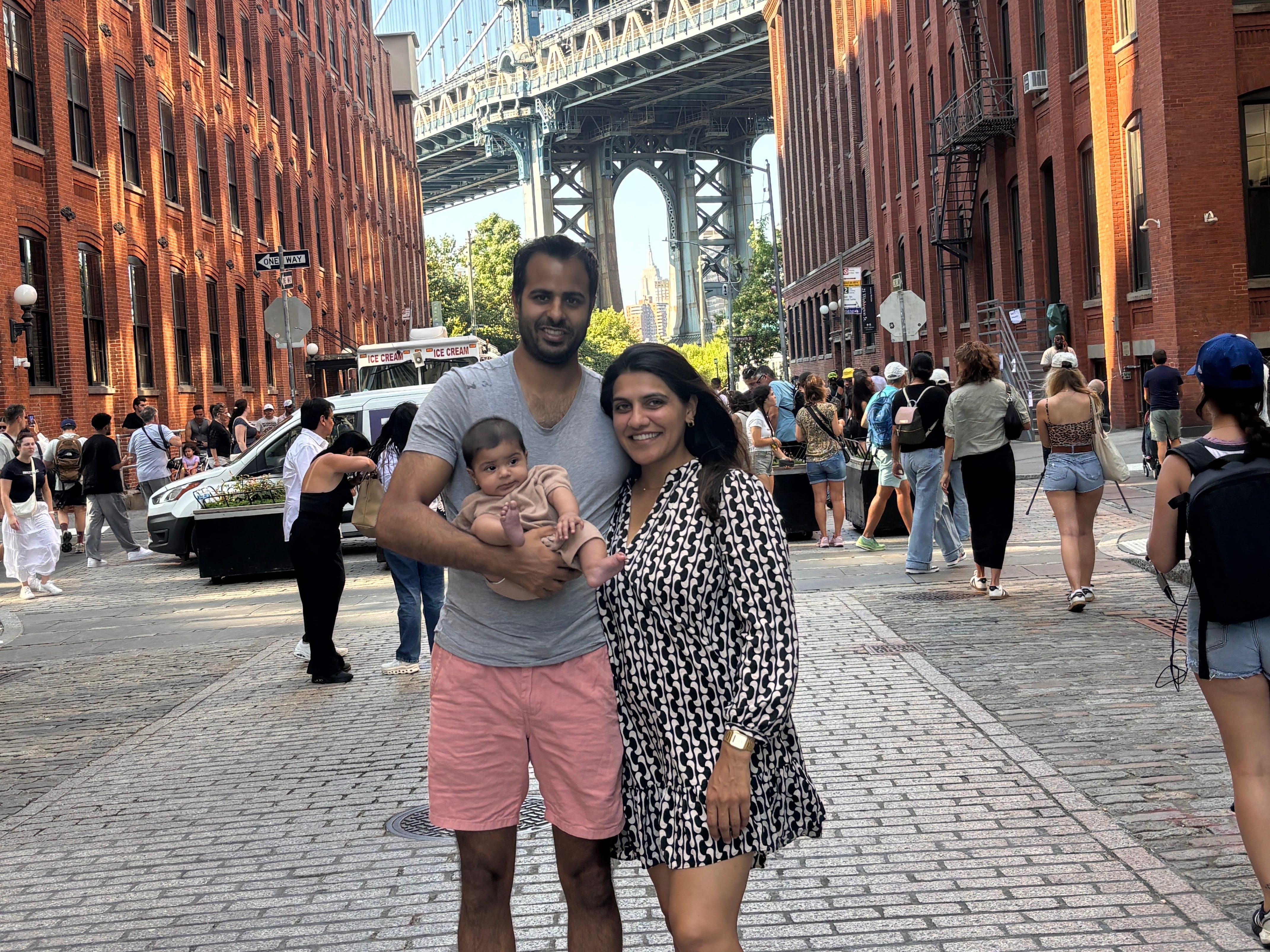
Priya Sadhwani
- Some travelers are opting for home swapping over hotels and vacation rentals as travel costs rise.
- Kindred was founded in 2021 and has grown to over 200,000 members worldwide.
- Kindred members say home swapping offers a personal, affordable, and authentic travel experience.
When London-based Priya Sadhwani and her husband were on parental leave, they decided to take an extended trip to New York City to visit family. After searching for vacation rental options, she realized it wasn’t feasible for a monthlong trip.
“New York is unaffordable to do so on Airbnb,” she said, adding they wanted a place that was a similar size to their home. “I just wanted that same feel with the baby and also for my parents to come and stay with us in the city.”
That’s when she discovered Kindred, a membership-based home swapping network that allows users to stay in each other’s homes around the world. No money is exchanged between hosts and guests. Instead, guests pay Kindred a standard cleaning fee and a service fee that averages $15 to $30 per night. Priya and her husband ended up coming to New York for six weeks and staying in three different Kindred homes. In total, they paid around $1,800 for their stays.
Not only was the home swapping experience more affordable, but it was also more personal than traditional travel stays, she said. One of the hosts even left diapers in her daughter’s size and cheesecake in the fridge because the owners were starting a cheesecake business.
“It feels like I’m staying in a friend’s house while they’re away,” she said.
Sadhwani and her husband are part of a growing group of travelers who are turning to home swapping instead of hotels or short-term rentals, as travel costs are on the rise and remote work has provided more flexibility.
“There’s just a tremendous need and a tremendous desire for a new way to travel that’s more human, way more affordable, and also more responsible for our cities,” Justine Palefsky, cofounder and CEO of Kindred, told Business Insider.
Since its founding in 2021, Kindred has grown to over 200,000 members. Some of the most popular destinations are New York, London, Los Angeles, Paris, and Amsterdam, and over 90% of the properties on Kindred are primary residences. In 2023, Kindred raised $15 million in Series A funding led by New Enterprise Associates.
Homes of all types are accepted on the app, from studio apartments to multi-bedroom mansions, but they all must meet the minimum standards of being safe, functional, and inviting, Palefsky said.
“It doesn’t need to be Architectural Digest, but it needs to have some amount of soul and personality,” she said.

Kindred
Home swapping is a ‘social contract,’ not a financial one
Kindred is a give-to-get marketplace. It’s free to join and no money is exchanged between host and guest, but in order to stay in someone else’s home, members need to offer up their own home.
Sometimes the app connects people for direct swaps — for instance, a member in Los Angeles could swap their home with a member in New York for two weeks. Members can also build up credits by offering their homes when they’re out of town and not staying at another Kindred. They can then spend those credits on nights at other Kindred homes.
Palefsky said the swapping “allows the relationship to feel much more like a social contract instead of a financial contract.”
Meagan Cignoli, a sculptor based in West Hollywood, told Business Insider that Kindred is the first option she checks when planning a trip. She’s stayed in Kindred homes in Portugal, Greece, Mexico, and Joshua Tree. She’s even used it locally to stay in downtown Los Angeles or Santa Monica when she has a couple of days of work on the other side of town and doesn’t want to deal with commuting back and forth.
“Now, when I look at hotels or Airbnbs, I’m shocked by the price,” she said.
“The one bad thing is it has me so spoiled by the price that it’s hard to swallow other options” when she’s traveling to destinations without Kindred.
Cignoli first started home swapping nearly 20 years ago, using platforms like Craigslist. She said a major benefit of Kindred is the variety and flexibility. By offering another member a weekend at her one-bedroom apartment, she can earn credits to stay a weekend at a four-bedroom house with a pool.
And because each Kindred stay has a one-time cleaning fee regardless of how many nights they stay, guests get a better deal the longer the trip. Cignoli said it’s enabled her to take much longer vacations than she would otherwise.
Trust is key
Palefsky said Kindred’s main challenge is sustaining its growth while maintaining trust.
“This only works if people really feel comfortable joining with their primary residence, and that’s a big leap,” she said, adding that the company is “obsessed” with ensuring it’s delivering a quality experience.
To use the app, would-be homeswappers apply. Once accepted, members’ identities are verified via government IDs. New members are required to complete “a quick home verification before their first trip,” according to Kindred’s website, to make sure “homes on the platform are accurately represented.”
Sadhwani said she makes a point of having a video chat with anyone she’s swapping with. It helps her feel more comfortable about hosting people she doesn’t know, and it also makes her travel experience more personal by providing an opportunity to get recommendations from a local.
She’s also been amazed at how respectful Kindred members have been when staying in her home, and how easy it’s been to make friends with other members.
Kindred is now Sadhwani’s preferred way to travel, and it’s even dictating where her family decides to go next.
“Instead of looking for a destination, we’re looking for a fun Kindred home to visit.”
Read the original article on Business Insider
The post Inside the rise of home swapping, the travel trend offering an affordable alternative to hotels and vacation rentals appeared first on Business Insider.




